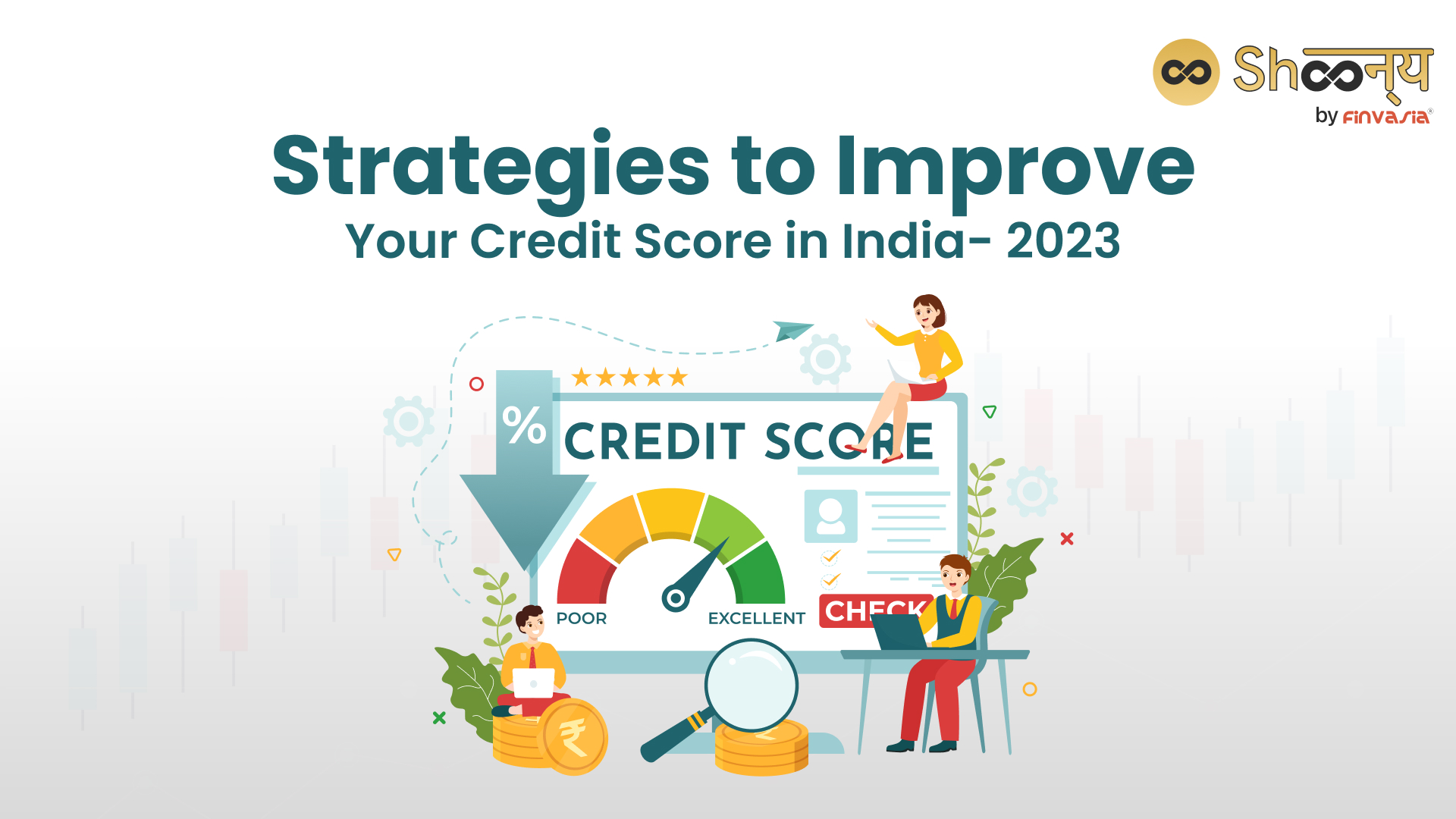A Comprehensive Guide on How to Improve Your Credit Score in India (2023)

A credit score is a numerical representation of your creditworthiness, helping financial institutions calculate your ability to repay debts. In India, this score is crucial for obtaining favourable interest rates, higher loan amounts, and better credit cards. Whether you’re eyeing a loan or aiming for a premium credit card, understanding the nuances of credit scores is essential. In this guide, we’ll explore strategies on how to improve your credit score with some strategies that you can adopt.
What is a Credit Score
It is the numerical representation of your creditworthiness, ranging from 300 to 900. This score influences your ability to secure favourable interest rates, higher loan amounts, and premium credit cards. In India, the key credit rating agencies are – CRISIL, CARE, ICRA, and Acuite Ratings & Research Ltd., which—play a crucial role in assessing and calculating your credit score.
Each bureau has its own scoring model and criteria but generally uses similar factors and weights. The most commonly referred to credit score in India is the CIBIL score, which is calculated using the following formula:
CIBIL Score = (35% x Payment History) + (30% x Credit Utilization) + (15% x Credit Mix and Duration) + (10% x Credit Inquiries) + (10% x Other Factors)
Your credit score can change over time. However, it depends on your credit behaviour and activity. Therefore, it is important to monitor and improve your credit score on a daily basis, especially if you are planning to apply for a loan, a credit card/ any other financial product.
How to Improve Credit Score Fast: Some Strategies to Adopt
In India, your credit score is like a financial report card. It shows how well you handle money and impacts your capability to get loans or credit cards.
Here are some of the basic things you must know to improve your credit score:
1. Pay Your Credit Card Bills Smartly
Make sure to pay your credit card bills on time. If possible, pay before the billing cycle ends. This helps show that you’re using less of your available credit, which is good for your credit score.
2. Ask for More Credit (But Be Careful)
You can ask your credit card company to increase your credit limit. Be cautious, though, because this might temporarily lower your credit score. Only do this if you have a good history of paying your bills on time and are confident in managing your spending.
3. Use Someone Else’s Good Credit (Responsibly)
If your credit history is short or not great, you can benefit from someone else’s good credit. Ask a family member or friend if you can use their credit card. But be responsible – overspending could hurt both your credit scores.
4. Always Pay Your Bills on Time
Paying all your bills on time is crucial. This includes credit cards, loans, utilities, and rent. Set up reminders or automatic payments to make sure you never miss a due date. On-time payments not only help your credit score but also save you from late fees.
5. Fix Mistakes on Your Credit Report
Check your credit report regularly for errors. If you find any mistakes, dispute them with credit bureaus like CIBIL, ICRA, or CARE. This is important because fixing errors can quickly boost your credit score.
6. Understand Credit Factors in India
Know the basics of how credit works in India. Understand the role of credit bureaus, the impact of GST, and the benefits of Aadhaar. These factors affect your creditworthiness in the Indian financial system.
Why do you need to Improve your Credit Score?
Our credit score isn’t just a number; it’s a key that unlocks various financial opportunities. A stellar credit score opens doors to better loan terms, lower interest rates on mortgages and credit cards, and even savings on insurance premiums, rent deposits, and utility bills. Beyond that, a good credit score enhances job prospects, supports business ventures, and simplifies the process of renting a home. It’s a reflection of our financial responsibility, building trust and paving the way for a host of benefits.
- Ensure timely and full bill payments, as it forms the foundation of financial trust, contributing 35% to the CIBIL score.
- Maintain a low credit utilisation ratio to showcase responsible credit usage, a key factor comprising 30% of the CIBIL score.
- Regularly monitor your credit report for errors, securing a free annual report from credit bureaus like CIBIL, Equifax, Experian, and CRIF High Mark.
- Diversify your credit mix and duration to exhibit versatility in handling various financial obligations, collectively contributing 25% to the CIBIL score.
- Limit credit inquiries strategically to reflect sound financial decision-making and avoid the negative impact of excessive inquiries on your credit score.
Conclusion: Taking Small Steps for Big Credit Improvements
There are multiple things to keep in mind in order to Improve your credit score. Remember, simple actions like paying on time, fixing errors, and understanding Indian credit factors can make a big difference.
Source- moneycontrol.com
______________________________________________________________________________________
Disclaimer: Investments in the securities market are subject to market risks; read all the related documents carefully before investing.






